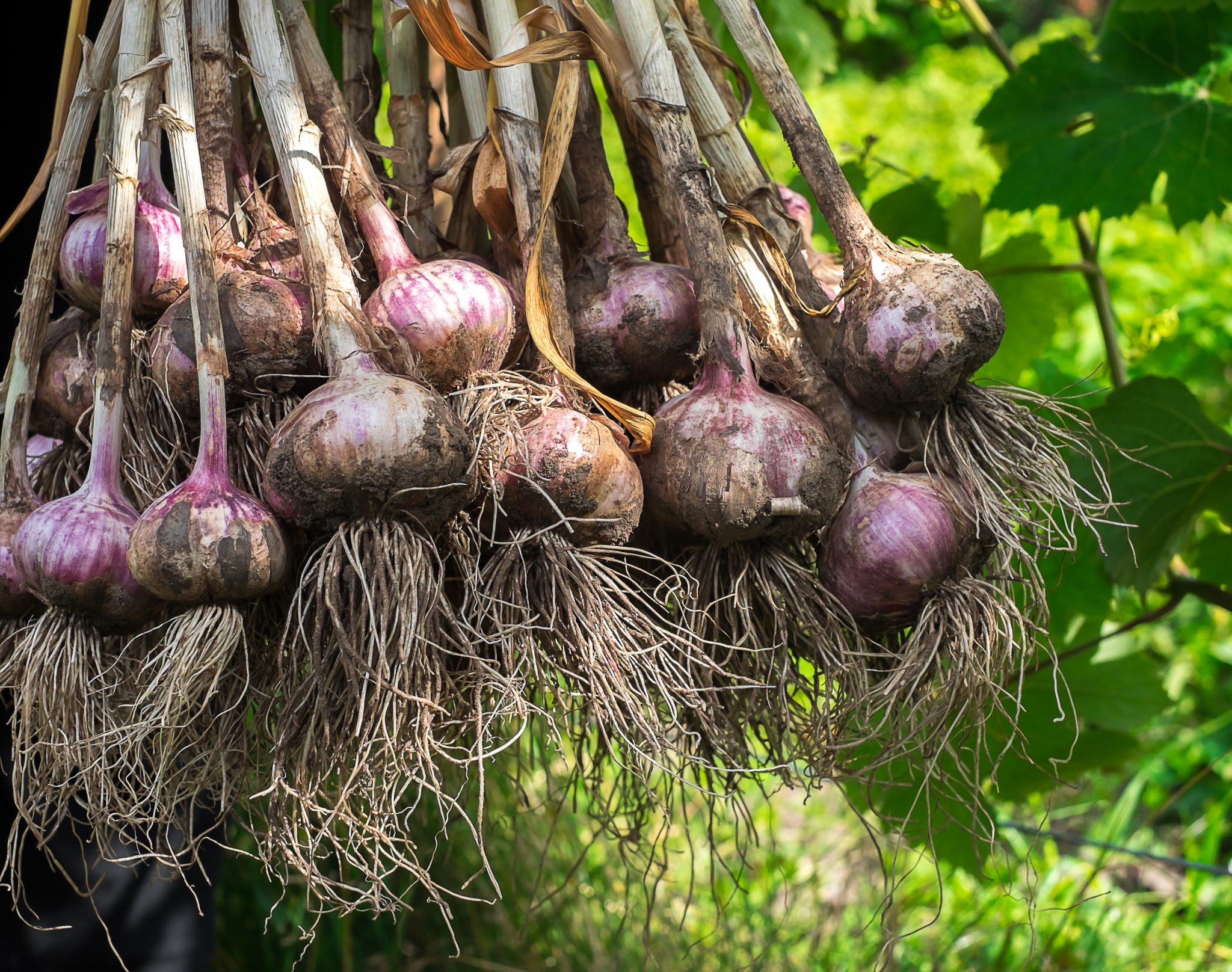Lawn & Garden

Learn about planting, rotating, fertilizing, harvesting, curing, and storing of garlic.
Garlic is a member of the large Lily family, which includes onions, garlic, and leeks. Ordinary garlic (Allium sativum) is that found most often in Alabama gardens, but several garlic cultivars are available.
Elephant garlic is a different species (Allium ampeloprasum) and has a milder flavor. It is so mild that it can even be eaten raw! In addition to garlic’s culinary and medicinal uses, garlic adds color to your landscape with its dark green foliage and ball-shaped flowers.
Garlic has long been planted as a companion plant to ward off pests from some vegetable and herb plants. However, very little research has been done to substantiate the effects of this practice.
The best time to plant garlic in Alabama is in the fall from October to November. In south Alabama, the planting season is extended from October to February.
It is a good idea to practice rotation when planting garlic. Don’t plant garlic where onions or another member of the Lily family has previously been grown. Plant garlic in full sun and in a well-drained bed with organic matter added to it. Since garlic requires 3 to 4 months to mature, plant in an area where it won’t be disturbed. Garlic can become invasive over time, so you might want to consider establishing it in a separate bed.
Garlic bulbs have several cloves when mature. Divide bulbs into individual cloves. Plant each clove as a set (like onion sets) 4 to 6 inches apart. Plant elephant garlic at least 12 inches apart.
Push cloves about 1 inch into well-prepared soil. Make sure you have the correct end of the clove pointing up. The top is the more pointed end.
Start with a complete fertilizer, such as 8-8-8, broadcasted over the bed at planting. A slow-release fertilizer will provide continuous nutrition during the fall. Fertilize again in February, primarily with nitrogen fertilizer. Save a few of your best bulbs to use as sets for your next crop. The larger the cloves, the larger the bulb will be.
Fall plantings usually mature in late May or early June. If you planted late, harvest will be later. Remove flower stalks when they appear in order to produce larger bulbs and cloves.
Harvest garlic when leaves begin to turn yellow and fall over. Take up plants and lay in a warm, shady, dry area for several days. One suggestion is to hang individual bulbs by a string or in mesh bags in a warm, dry place like a barn. Do not wash bulbs before curing or bang them together to remove soil.
Most varieties will keep for 6 to 8 months in a dry, well-ventilated area. However, elephant garlic doesn’t keep as well as other varieties.
Download a PDF of Horticulture Notes: Add Garlic to Your Garden, ANR-1093.

